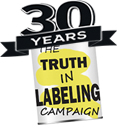RISK

MSG and Brain Damage
Evidence of free glutamate-induced brain damage was first published in the medical literature in 1969 when John Olney reported that treatment with free glutamic acid caused brain lesions in several regions of the developing brain of neonatal mice, and acute lesions in the brains of adult mice given 5 to 7 mg/g of glutamic acid (milligrams of glutamic acid per gram of animal body weight) subcutaneously (1). At the time, Olney was using inexpensive monosodium glutamate (brand name Accent) for his studies instead of using more expensive pharmaceutical grade glutamic acid.Research that followed confirmed that free glutamate induces brain damage when given to immature animals after either subcutaneous or oral doses. Today, researchers use MSG as a tool with which to kill brain cells in order to study and develop drugs with which to fight glutamate-induced brain damage, and to study glutamate-related abnormalities.
It is unbelievable that researchers use glutamate -- the same free glutamate found in MSG -- as a tool with which to kill brain cells in order to develop drugs for diseases of the brain. It boggles the mind to think that those researchers might be unaware of the fact that the free glutamate found in infant formula, enteral care products, protein powders, cosmetics, dietary supplements, pharmaceuticals, vaccines, and processed foods is the same free glutamate that they are researching. The ALS Association tells readers that "excessive exposure to glutamate may be one of the reasons that nerve cells (motor neurons) die in ALS." And yet, pressure from the glutamate industry makes it politically incorrect to connect the dots... to allow that the excitotoxic free glutamate in monosodium glutamate is one and the same as the excitotoxic free glutamate used in the laboratory to kill brain cells to study conditions such as ALS (Lou Gehrig's disease) (2).
The medical literature is replete with studies of addiction, stroke, epilepsy, degenerative disorders (Alzheimer's disease, Parkinson's disease, and ALS, for example), brain trauma, neuropathic pain, schizophrenia, anxiety, and depression -- seemingly diverse disease processes of the central nervous system related by the fact that free glutamate plays a significant role in each.
Reading these studies, the reader will find discussion of damaged or overly sensitive glutamate receptors, and malfunctioning glutamate transport. The reader will also find discussion of “glutamate pools” where excess glutamate is stored and then sometimes released to cause brain damage. Rarely mentioned, however, is the role that ingestion of excess amounts of processed free glutamate might play in producing these diseases; and if mentioned at all, it is by researchers from outside the United States.
Detailed discussion of brain damage caused by MSG will be found here.
References
1. Olney, J.W. Brain lesions, obesity, and other disturbances in mice treated with monosodium glutamate. Science 164: 719-721, 1969.2. ALS Associtation, Glutamate Research Could Lead to ALS Treatment

